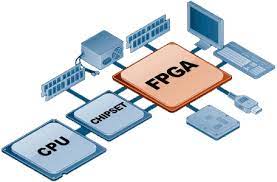Mastering FPGA-Based System Design: From Concept to Implementation

About Course
Field-Programmable Gate Arrays (FPGAs) are reshaping the world of embedded systems, high-performance computing, and real-time data processing. This course is your gateway to understanding how these reconfigurable platforms can be leveraged to build powerful, efficient, and scalable systems from the ground up. Whether you’re curious about digital design or aiming to build AI-accelerated hardware, this course provides a comprehensive guide from foundational concepts to cutting-edge applications.
Through a carefully structured journey, you’ll explore the architecture of FPGAs, learn how to program them using VHDL/Verilog, prototype real-world systems, and even dive into advanced applications like implementing AI on FPGA platforms. Packed with case studies, design strategies, and practical insights, this course demystifies FPGA design and equips you with the knowledge to confidently develop and deploy your own custom hardware solutions. Perfect for engineers, students, and tinkerers alike—if you’re ready to turn your digital design dreams into reality, this course is the perfect place to start.
Course Content
Introduction
Overview of FPGA technology
00:00Benefits of using FPGAs for system design
00:00Key considerations when designing with FPGAs
00:00